Back to the Garden, or Back to the 1950s?
North America’s political crossroads...or, what the hell happened?
TOBIN TALKING ABOUT HIMSELFGENERAL SHITGETTING OLDMUSIC
9/20/20255 min read
For the most part, I try and keep this blog light, but with everything going on right now, I'm really wondering how anyone can stay silent...
Well, unless you want to get your ass canceled, like Stephen Colbert and Jimmy Kimmel.
So, please, either indulge me, or stop reading now, as I throw my old-man gaze on some current events and how we got here.
The recent death of Charlie Kirk, a man whose political career was built on amplifying division, offers a moment of pause for North America. It feels like a symbolic hinge in a broader story: the ongoing struggle over the soul of American politics. And it’s a struggle that has been shaped, weirdly, by the very generation that once promised peace, love, and revolution.
Donald Trump, the Great American Dicktator (misspelling fully intended) born in 1946, is emblematic here. He came of age during the height of the counterculture, a time when Woodstock’s call for a new consciousness seemed to herald a shift in human history. The “Age of Aquarius,” so it was called, lifted up the radical possibility that a society could be rooted in empathy, equality, and love. The lyrics of Joni Mitchell, as sung by Crosby, Stills, Nash & Young (among others)—we are stardust, we are golden, and we’ve got to get ourselves back to the garden—were less a song than a manifesto for millions of young Americans.
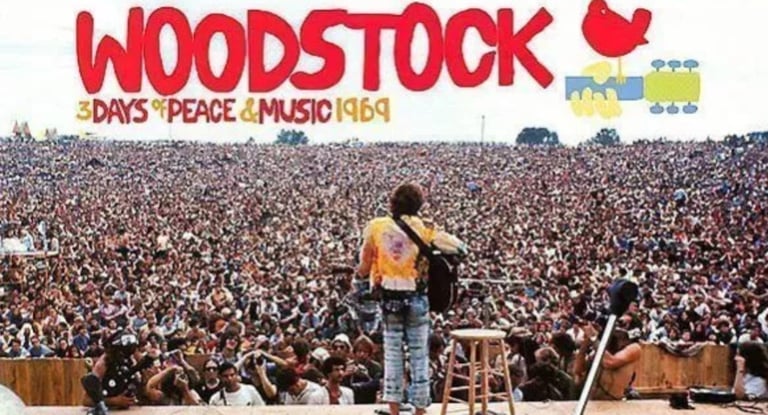

So what happened? How did a generation that once gathered in fields to chant for love and equality become the gray-haired gatekeepers of a system tilted toward billionaires and corporate giants?
Some of it is the seduction of comfort. The Woodstock generation grew up, bought homes, climbed corporate ladders, and eventually became the establishment they once protested. Others were never true believers in the first place—young Trump, for example, was more interested in real estate deals than in flower power. Still others may have held onto fragments of their ideals, only to compromise them bit by bit in the grind of politics and business.
But there’s also a deeper dynamic at work: fear. As the nation became more diverse, more pluralistic, and more democratic in culture if not always in governance, many in this aging generation clung harder to power. The promises of peace and love gave way to the demands of hierarchy and control. Woodstock was replaced by Wall Street.
"Tune in, Turn on, Drop out" has been replaced by "Buy in, Screw over, Cash out." Who needs to get high when you can get rich, instead?
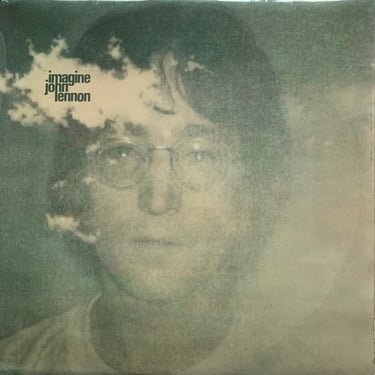

Charlie Kirk, though much younger than Trump, was in many ways the mouthpiece for this backward-looking project. He built his career selling the politics of fear to younger conservatives, trying to bind Millennials and Gen Z into the same nostalgia trap that animates Trump’s base. His death doesn’t mark the end of that movement, but it sure as hell does symbolize a shift. The culture war voices that once seemed fresh are now growing stale.
The deeper question, to me, is whether younger Americans will continue to let this graying elite dictate the future. Everything I've seen shows that Millennials and Gen Z are more progressive on issues like climate change, racial justice, gender equality, and LGBTQ rights. They are less taken with corporate monopolies, less patient with endless wars, and more willing to demand systemic reform. Yet the halls of power remain clogged with octogenarians.
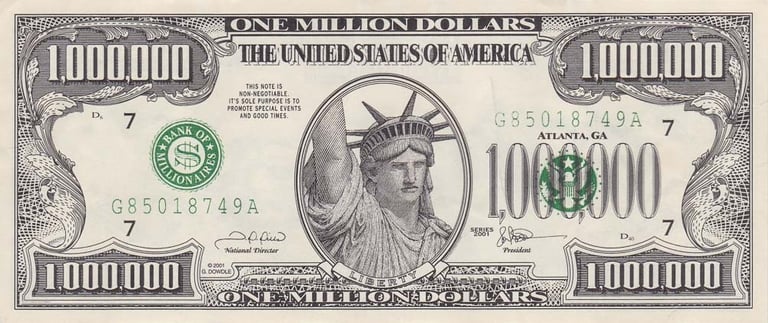

Mitch... Trump bitch
So here we are. The “Age of Aquarius” generation is in charge, but rather than guiding us toward the garden they once sang about, they are steering us backward. The tragedy is not just that they abandoned their ideals, but that they now wield the full force of government to prevent younger generations from realizing theirs.
Remember, this was the Hippie era. It was all about hedonism, free love, no rules. Fuck the Man.
Yet, these same people who were so counterculture five decades ago are now handcuffing, gagging, or outright eliminating those who would challenge the system, much as they were allowed to do.
But history moves in cycles. The old guard cannot hold onto power forever. The death of Charlie Kirk is not the end of an era, but it may be a reminder that eras do end. God, I hope so. The same generation that once believed in utopia now fears the very future they once longed for. The task of reclaiming that vision falls not to them, but to those who follow.
After Lennon was murdered—much like Charlie Kirk, 45 years later—Elton John and Bernie Taupin wrote a song about him, in which they likened Lennon to a gardener.
He must have been a gardener that cared a lot
Who weeded out the tears and grew a good crop
And we are so amazed, we're crippled and we're dazed
A gardener like that one no one can replace
The question is whether you—the stardust and golden ones of this generation—can finally get yourselves back to the garden. Not the nostalgic garden of the 1950s, but the one promised at Woodstock: a garden of equality, peace, and human flourishing. A garden still waiting to be planted.
Who will be the next dreamer, the next gardener that takes on those that would choke this world?
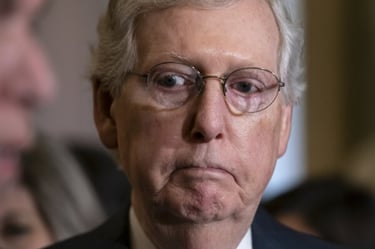

It’s not just about Trump. We're in the grip of a generational time warp. The average age of American politicians now is a full generation older than the people they govern (60 years old, vs 39). The result is a political elite that not only lags behind in age, but also in cultural imagination. Instead of moving our society toward the “garden” of their youth, they seem intent on rewinding the clock back to the 1950s, or even earlier.
Consider what that means. In the 1950s, the social order was rigid: women belonged in the kitchen, Black Americans were kept out of power by Jim Crow, LGBTQ people lived underground, and white men dominated every sphere of public life. To many politicians of Trump’s generation, this era seems like the golden age worth reviving. Hence the obsession with “traditional values,” the rolling back of reproductive rights, and the fixation on cultural purity... and the rise of those like Charlie Kirk.
But for younger generations, especially Millennials and Gen Z, the 1950s are not a place of nostalgia. They are a nightmare we’ve worked hard to escape.
John Lennon, for all his money and his faults, dared dream of something better. No need for greed or hunger. A brotherhood of Man.
Now, you may say he was a dreamer, but he's not the only one.
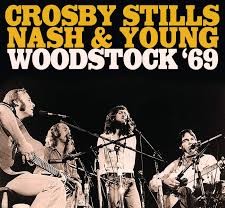

And yet, Trump did not become a disciple of peace or love, though those alleged bone spurs sure kept him away from the violence, didn't they? He became, instead, a prophet of resentment and grievance. In that sense, his life charts the larger paradox of his generation. How did the dreamers of Woodstock, the young people who once rejected conformity and corporate greed, become the very politicians, CEOs, and power brokers who now serve only massive corporations, or the narrow interests of straight, white men with eight-figure bank accounts?
